The NUJU receives complaints from print media editors that the existing infrastructure of postal delivery of press does not allow a large part of Ukrainians, primarily the elderly, to receive pre-paid editions guaranteed.
This was emphasized by the President of the Union, Sergiy Tomilenko, speaking at the round table dedicated to challenges for the sustainability of Ukrainian mass media, with the participation of the Director General of Ukrposhta, Ihor Smilianskyi.
Ukrposhta declares that it is working on errors
“The issue of postal delivery is one of the key problems of the print media in Ukraine,” Sergiy Tomilenko stressed. He noted that after surveying 100 editors of Ukrainian newspapers, the average rating they give to the quality of postal delivery is 4.2 points on a ten-point scale.
Director General of Ukrposhta Ihor Smilianskyi admitted that there are problems with postal delivery but added that the company is investigating the reasons for the failures and trying to eliminate them.
“Ukrposhta works in difficult conditions,” said Ihor Smilianskyi. “We lose 1-2 departments every week due to russian shelling. But we are not going to give up; we plan to work. Stoves, firewood, and Starlinks were purchased for the winter. We are introducing new delivery schedules for print media, developing new delivery directions, and taking the military situation into account… We are introducing new powerful computer lines for sorting, and from August 1, all Ukrposhta branches, including mobile ones, will be computerized, and we will move to essentially paperless work.”
According to Ihor Smilianskyi, Ukrposhta is working to switch its employees from the bicycles they currently use to electric bicycles and scooters.

In order not to depend on individual mail carriers for subscription issues, Ukrposhta is creating a computer database of subscribers, and each of them will receive telephone offers for subscription renewal. On the other hand, the current correspondence between the post office and periodical publishers will be replaced by a digital “publisher’s office,” where all communication will take place.
In order to protect the work of Ukrposhta from disruptions caused by russian attacks, the company is creating a backup control room and a back office for calculations in the west of Ukraine.
Also, according to Ihor Smilianskyi, starting next year, Ukrposhta will refund subscribers for undelivered copies of the printed press. This will be done automatically, even before receiving complaints from subscribers. On the other hand, as Smilianskyi noted, if one or another publication produces “paired” issues instead of two issues, the reader will receive one. The post office will demand compensation for the undelivered second issue from the newsroom.
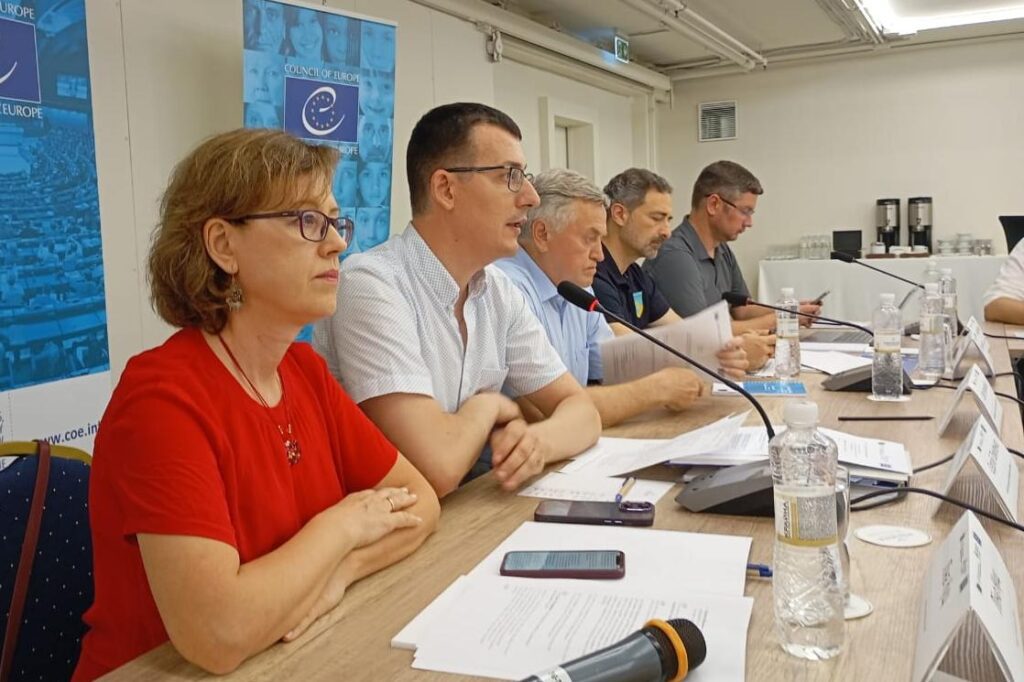
3% subscription growth? How?
According to Ukrposhta‘s calculations, subscription rates in the second half of 2024 will exceed the rates of the first half by 3%. This thesis, voiced by Ihor Smilianskyi, surprised many participants at the round table.
“Unfortunately, you hide your statistics from the public, and we don’t understand where this growth comes from because many editors complain about the decrease in subscriptions,” said Sergiy Tomilenko. “We also do not understand the quality of the subscription because there are certain publishers that produce so-called “butterfly newspapers,” which are published several times a year on several pages, and there are corporate publications that can also influence statistics.

But Ihor Smilianskyi insisted that due to the increase in the price of press delivery, the vast majority of “butterfly newspapers” have stopped publication. Instead, strong local newspapers are maintaining and increasing circulation.
“The global trend is the consolidation of publications because it is difficult for small newspapers with weak content, which is not interesting to the reader, to retain subscribers,” said the head of Ukrposhta.
Unfortunately, Ihor Smilianskyi could not guarantee that the rates set for 2024 for the postal delivery of the press will be valid for the whole year because this indicator will be affected by the circumstances of the war, in particular, what the winter period will show.
“It is a difficult business to negotiate with Smilianskyi,” editors
The participants in the round table expressed their vision of the problems of cooperation with Ukrposhta. In particular, Oleh Kubar, the editor-in-chief of the Technopolis newspaper from Kramatorsk, Donetsk Region, believes that in the conditions of war, it is inappropriate to fine newspapers, which are already struggling to survive, for duplicate numbers. On this, Ihor Smilianskyi noted that the economic problems of both publications and Ukrposhta cannot be transferred to subscribers. On the other hand, when a subscriber does not receive his publication, he puts the responsibility primarily on the post office.
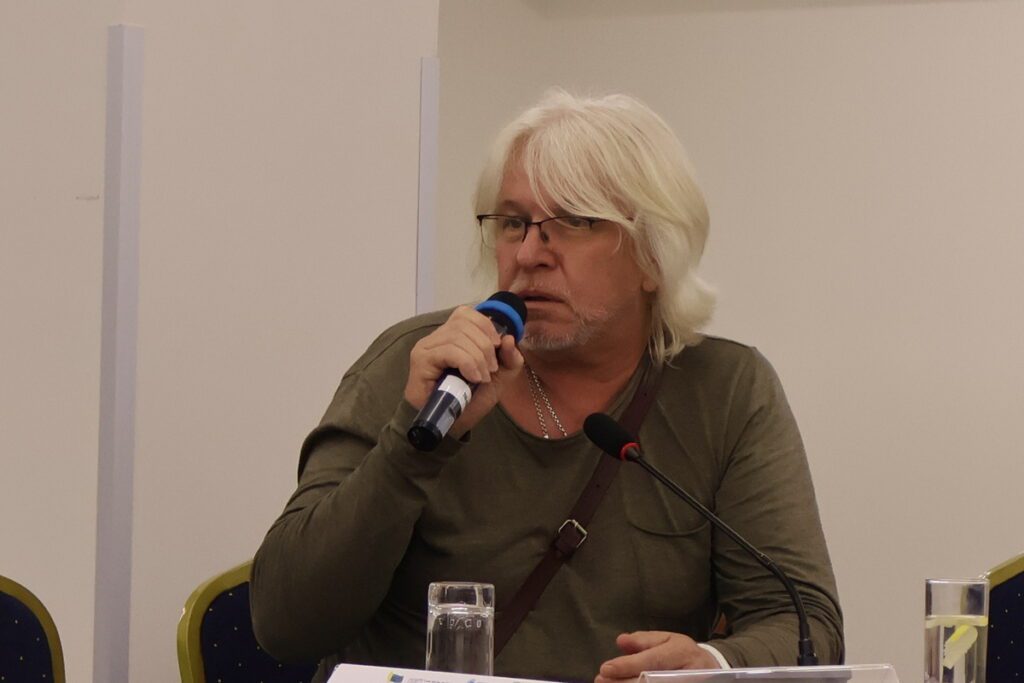
Oleksii Novikov, the editor-in-chief of the Ridnyi Krai newspaper from Hadiach, Poltava Region, raised the issue of the lack of press delivery on weekends. But, as Ihor Smilianskyi noted, villages often have only one mail carrier, so for delivery to be carried out seven days a week, one would have to be hired, which would greatly increase labor costs.
Oleksandr Pasichnyk, the head of the Zoria newspaper from Lyman, Donetsk Region, spoke about the importance of increasing the number of mail carriers in the front-line communities and also noted that he would like to sell some of the newspapers in retail at post offices. Ihor Smilianskyi agreed with the need to increase the number of mail carriers in the area of Lyman. He noted that this issue is in the process of being resolved. And retail sales at Ukrposhta branches are only a matter of concluding the appropriate contract.
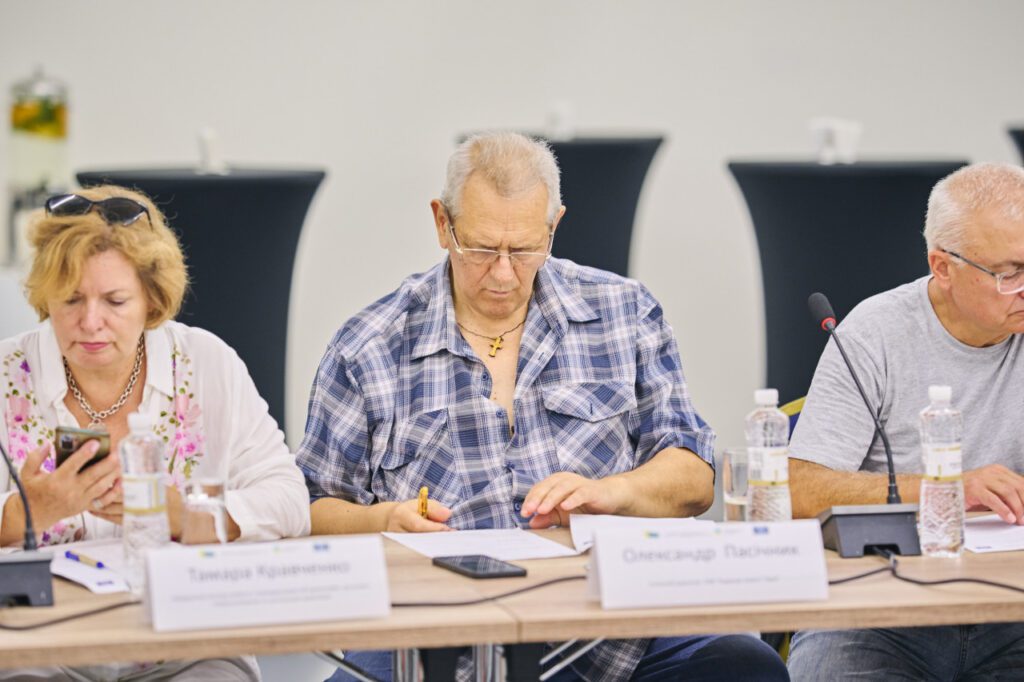
Serhii Nerodenko, the head of the high-circulation publication, Visnyk Ch, from Chernihiv, said that he had always fruitfully cooperated with Ukrposhta. But he also has problems. So, in the latest version of the cooperation agreement, there was a clause about the receipt of money by the publication for the semi-annual subscription 20 days later than before. In addition, in the opinion of the editor, the digitization of Ukrposhta services, for some reason, does not lead to a decrease in the price of these services but to an increase in their price, which is illogical. Finally, according to Serhii Nerodenko, the unilateral setting of tariffs by the service provider is not characteristic of a market economy, and the conclusion of contracts with each customer should be preceded by bargaining. In his opinion, the subscriber should establish contractual relations separately with the publisher of the press and separately with the post office in order to clearly know how much and to whom he pays.
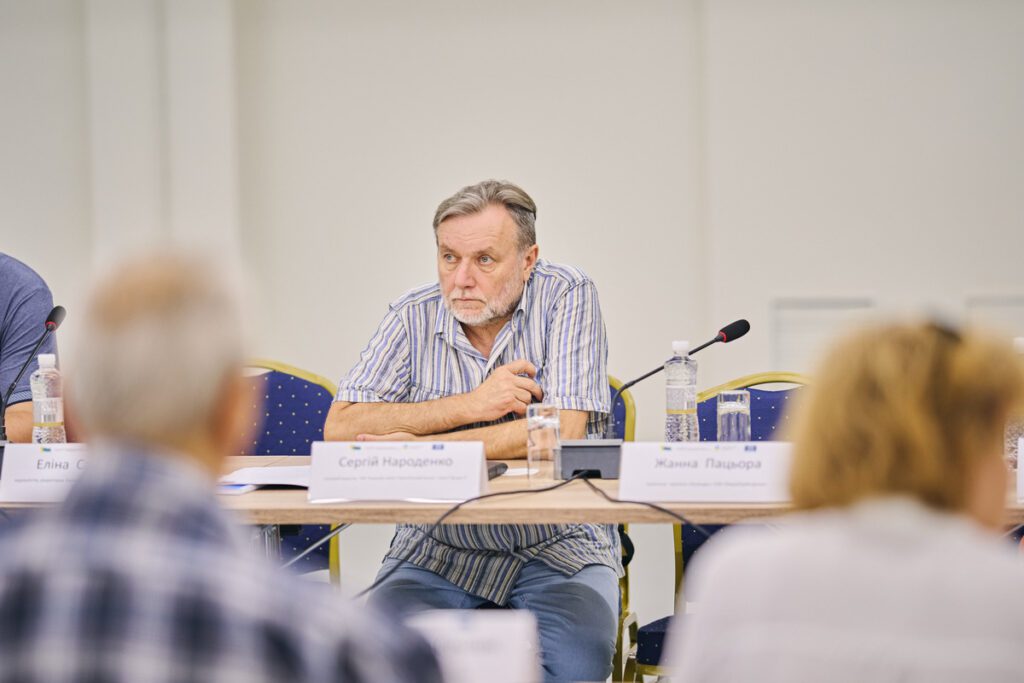
According to Ihor Smilianskyi, the extension of time is due to the fact that it is necessary to create a database of subscribers. As for individual tariffs, Ukrposhta has no right to set them, because it can be considered as corruption. The only thing that can be done is to differentiate tariffs depending on the edition’s circulation.
“It is a difficult business to bargain with Smilianskyi,” Serhii Nerodenko ironically concluded the conversation. “I did not bargain for anything…”
Oleksii Pasiuha, the editor-in-chief of the Vorskla newspaper from Velyka Pysarivka, Sumy Region, said that he is not against raising tariffs but against violations in delivery schedules.
“I have one question: when will the address delivery be?” he asked Ihor Smilianskyi. “People come to the store to get their newspaper, and it has already been given…”
“If I say that tomorrow – will you believe me?” Ihor Smilianskyi answered question after question. “We are ready to pay mail carriers salaries, but if we, together with the head of the military-civilian administration, cannot find a carrier, then I cannot do miracles.”
And when asked why a mobile office does not carry out address delivery, the director of Ukrposhta said that in the Sumy Region mobile offices of the company come for a short time, which is allowed by the head of the UCA. At the same time, he did not rule out violations on the part of the executors, therefore, in his opinion, the issue should be considered for each village separately.
The editor-in-chief of the newspaper Visti from Sloviyansk, Donetsk Region, Oleksandr Kulbaka, reproached Ukrposhta for excessive bureaucracy and the large number of documents it requires from newsrooms when concluding contracts. Ihor Smilianskyi connected this with issues of financial monitoring and financial stability because the newspaper can close at any moment.
In addition, Oleksandr Kulbaka asked about who appoints the head of Ukrposhta and sets his salary, as well as whether “Mr. Smilianskyi will drink champagne when the last printed newspaper dies.”
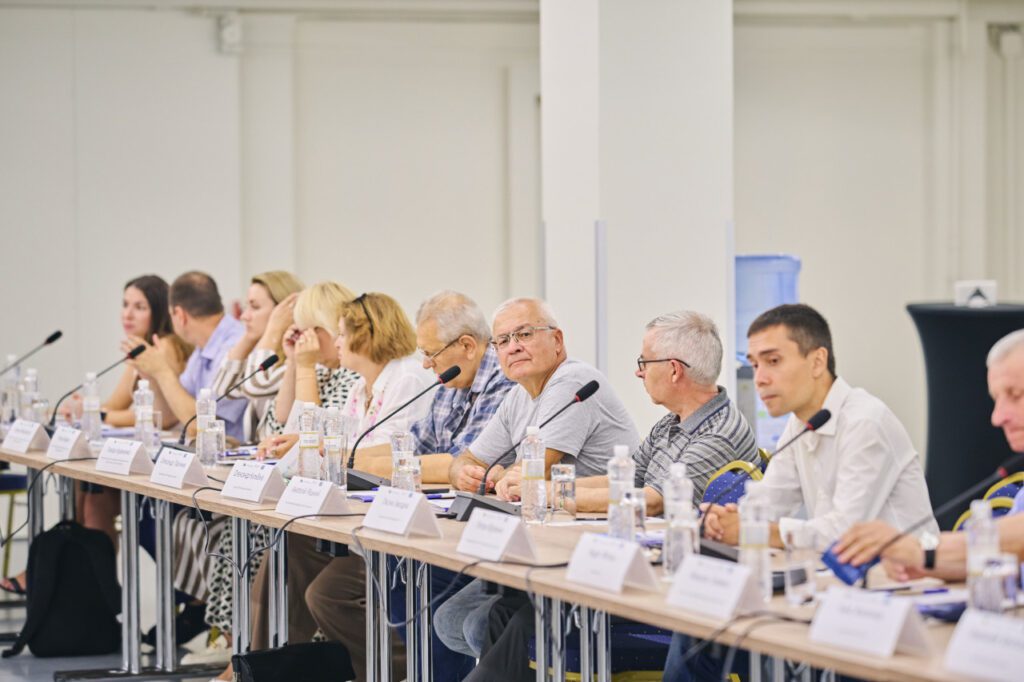
In response, the head of the postal operator reported that Ukrposhta is subordinate to the Ministry of Community Development, Territories and Infrastructure of Ukraine, that he personally has a contract “until Victory plus three months to issue the appropriate stamp,” and also talked about his work on the computerization of Ukrposhta, about increase in wages of employees, etc.
“I don’t hold on to this position; that’s probably why I’ve been working for eight years,” said Ihor Smilianskyi. According to him, it would not be possible to deliver mail to the villages of Donetsk today without the mobile offices, which were criticized so much. “I am not ashamed of what we do. It is shameful because colleagues do not work well. Therefore, we automate the work as much as possible.”
He also answered the pressing question of whether he wants to “bury the press.”
“If I wanted to do it, I would not spend UAH 25 million, which we invest in lines for sorting newspapers today,” he said.
Svitlana Perets from the Nadrossia newspaper from Korsun-Shevchenkivskyi, Cherkasy Region, welcomed the efforts of Ihor Smilianskyi to improve the work of Ukrposhta but believes that all these efforts “break down on the lowest echelon of postal workers.” There is high staff turnover in the branches, readers complain that they do not receive newspapers, and mail carriers, receiving small funds, often sabotage the instructions of the management.
According to Ihor Smilianskyi, postal workers are now motivated by comparing themselves with colleagues working in similar conditions. The 5% who deliver the most newspapers receive one and a half times more for each delivered newspaper, the next 40% receive no extra payments, the next 40% receive 1/5 less, and the worst 15% receive nothing for delivering newspapers.

“Previously, the best mail carriers left us because we “hung” a plan on them because the worst ones could not fulfill this plan. The new motivation system encourages better work,” said Ihor Smilianskyi.
On the other hand, Svitlana Perets noted that this system may be good. However, it does not solve the problem of a lack of personnel, and there is still no one to distribute newspapers.
The head of the Ye media corporation from Khmelnytskyi, Serhii Ishchuk, noted that working with the press for Ukrposhta is a very difficult task. There are cases when mail carriers leave not only newspapers but also peasant pensions in communities or shops. According to his conviction, the delivery of the press requires a state subsidy, which would be paid either to the postal operator or the newsrooms.
“Without the support of state grants, we cannot survive,” concluded Serhii Ishchuk.
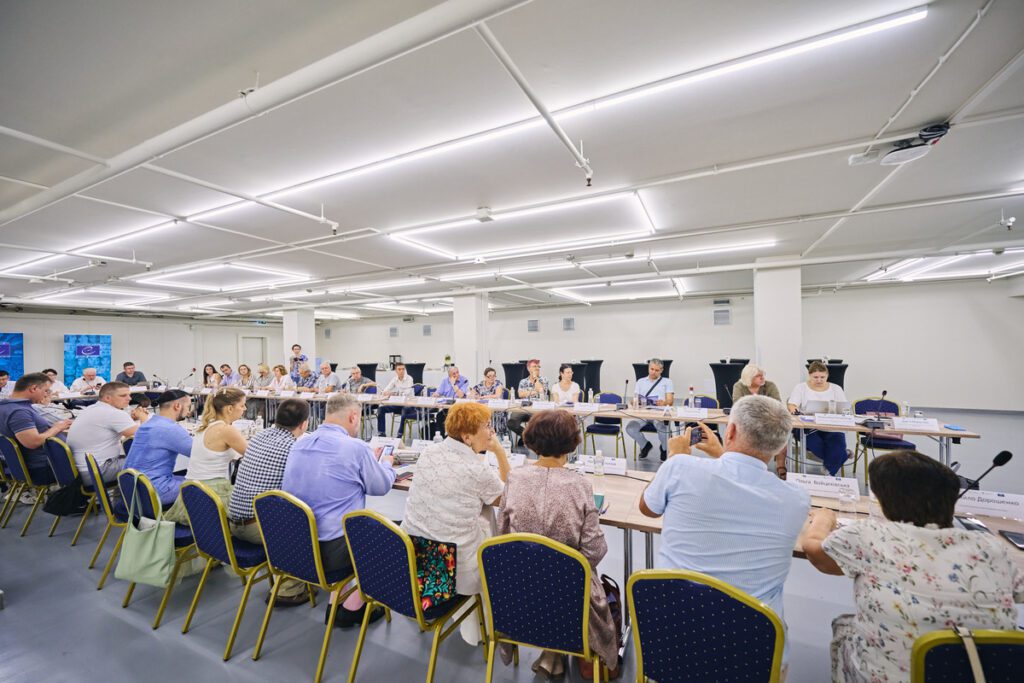
The round table was held on July 17, 2024, at the initiative of NUJU, the Ministry of Culture and Information Policy, the National TV and Radio Broadcasting Council, and the Office of the Council of Europe.

NUJU Information Service

 THE NATIONAL UNION OF
JOURNALISTS OF UKRAINE
THE NATIONAL UNION OF
JOURNALISTS OF UKRAINE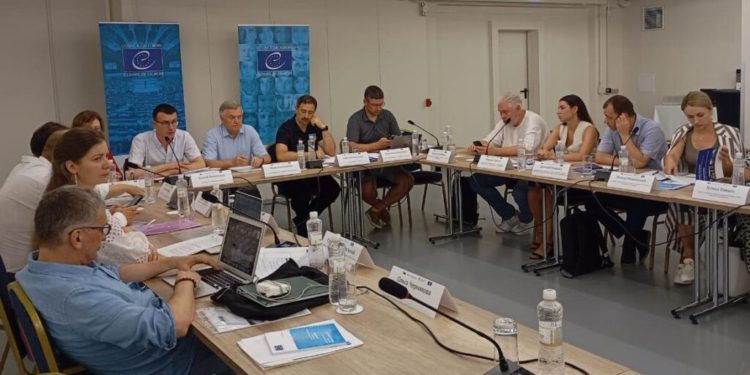















Discussion about this post